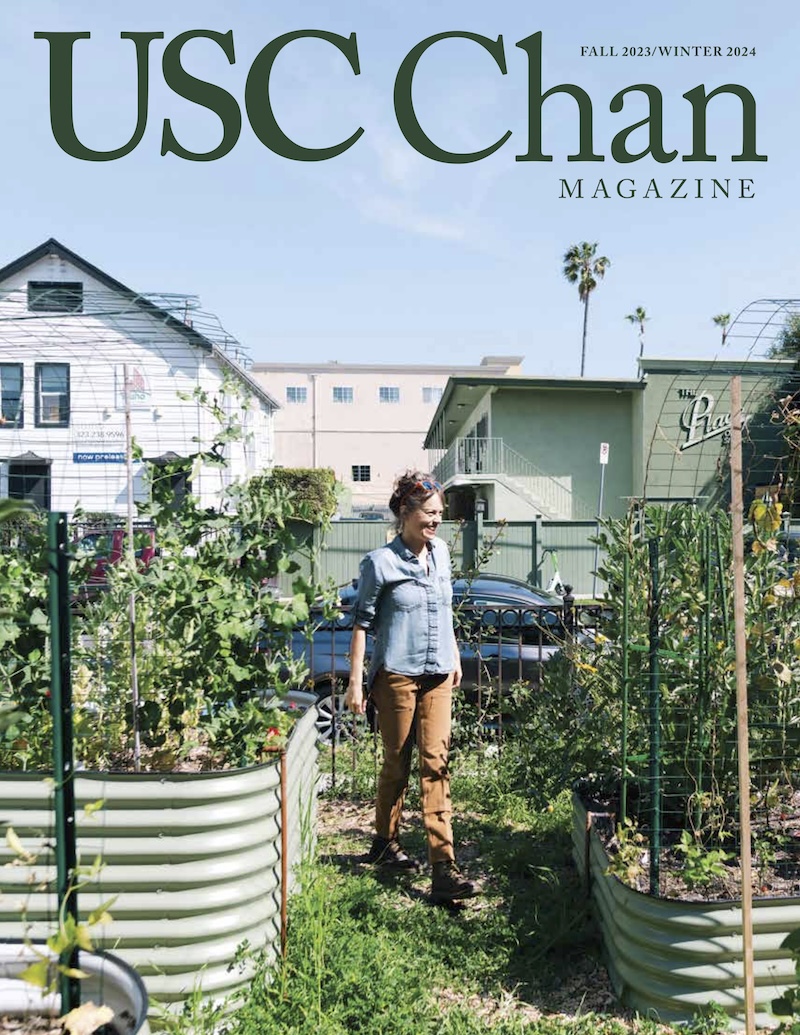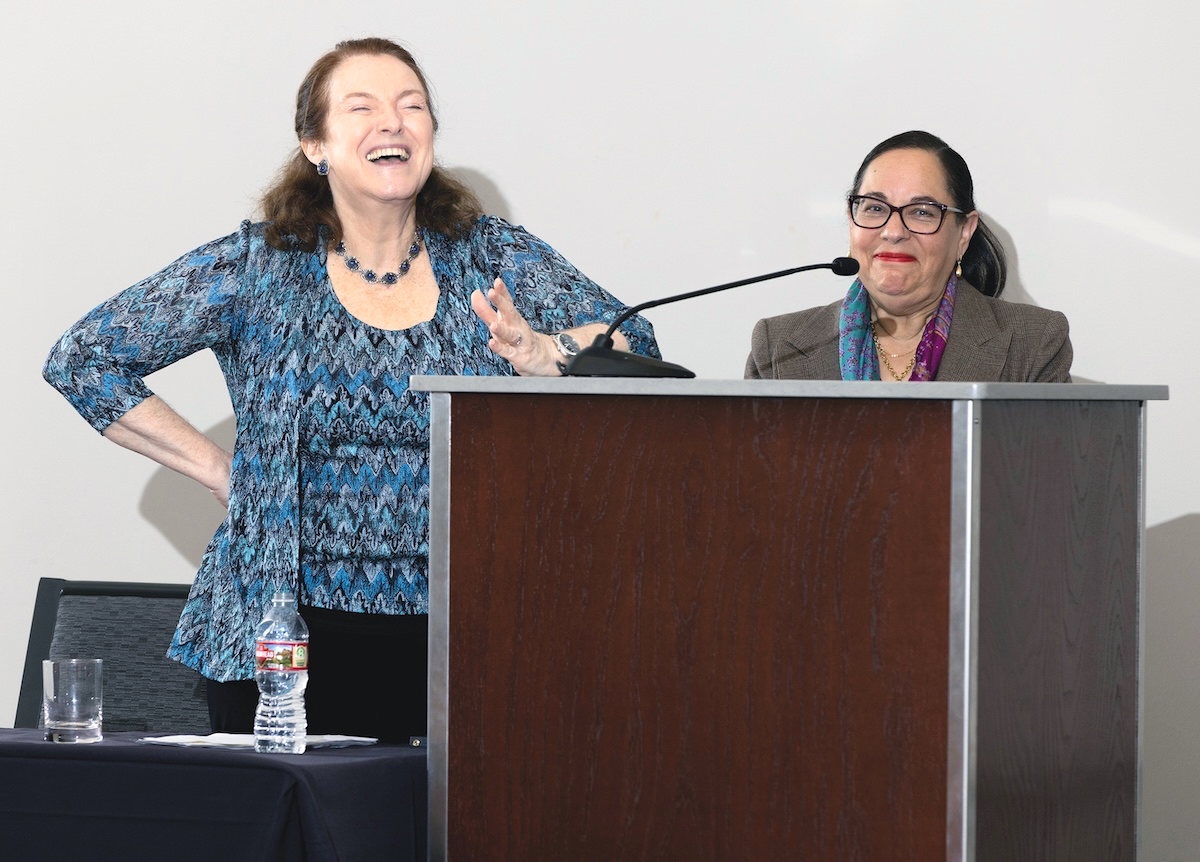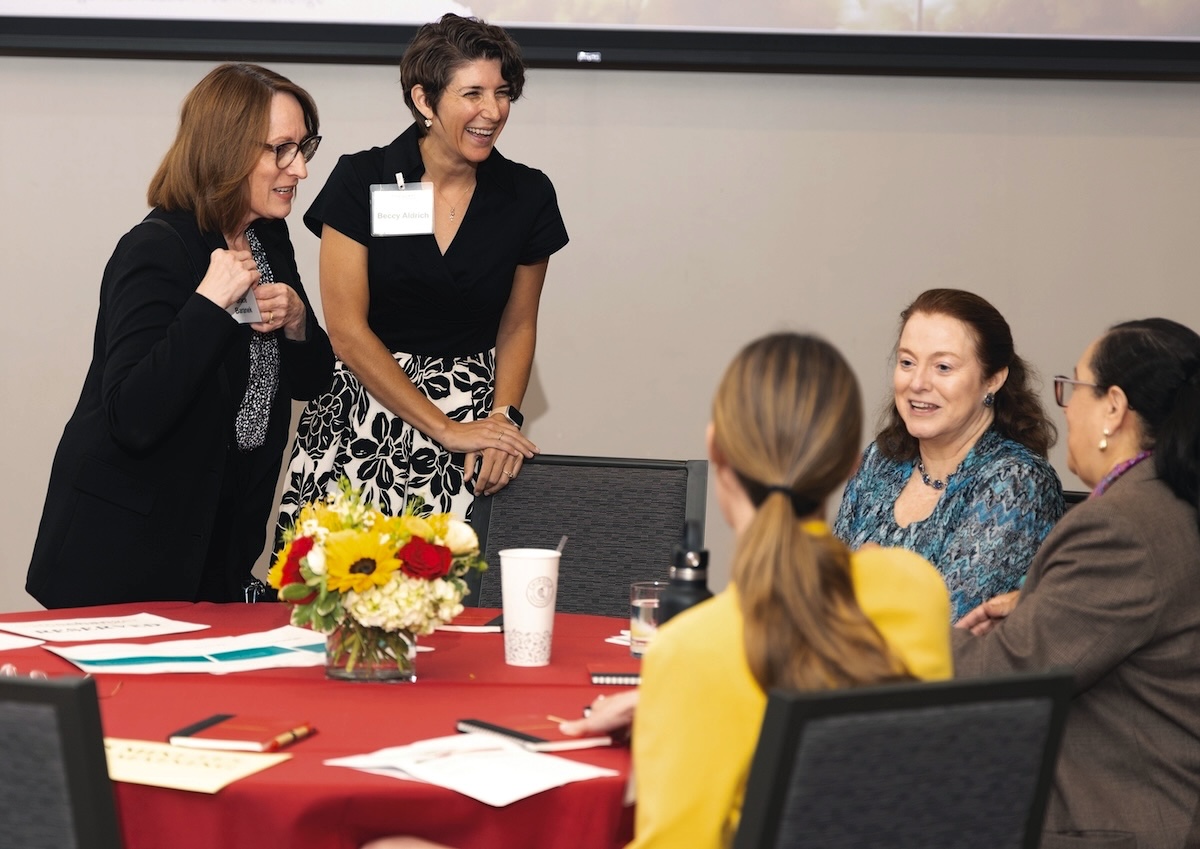New Team Challenge Looking to Change the Game
The inaugural gamechanger team-based challenge finds new ways of moving academic knowledge into the real world to benefit people’s everyday lives and occupations.
By Katherine Dumangas MA ’22, OTD ’23
Academic researchers are highly skilled at generating new knowledge. But they have long faced significant barriers to mobilizing knowledge, the process of intentionally and effectively sharing, accessing and promoting information through skillful partnerships with those who have the most to gain from it. To close that gap between knowledge generation and knowledge mobilization (KMb), last summer the USC Chan Division hosted its inaugural gamechanger Knowledge Mobilization Team Challenge.

Gamechanger’s development was led by Professor of Clinical Occupational Therapy Rebecca Aldrich ’05, MA ’06 and post-professional OTD residents Emily Rourke MA ’22, OTD ’23, Yen Wen Pan MA ’20, OTD ’22 and Katherine Dumangas MA ’22, OTD ’23. The format included a hybrid launch event, an eight-week incubator and a closing ceremony where teams gave their KMb product presentations and three winners were announced.
At the May launch event, attendees learned about KMb and explored their potential for building gamechanger teams to develop products that could eventually be disseminated to the public. The event featured keynote speakers Associate Dean and Professor Lourdes Baezconde-Garbanati from the Keck School of Medicine of USC, and Professor Sheila Murphy from the USC Annenberg School for Communication and Journalism. Baezconde-Garbanati and Murphy spoke about the power of narrative-based media to promote health equity. Among their transformative previous work is “Tamale Lesson,” a short video intervention about cervical cancer education and prevention aimed at Mexican-American women. The project is an example of how KMb, in collaboration with community partners with shared priorities, can shift real-world health care behaviors and outcomes for the better.
For eight weeks throughout the summer, seven gamechanger teams spent approximately 20 hours putting their KMb skills to work through an incubator experience. Teams participated in virtual workshops hosted by experts on digital accessibility and digital storytelling, and met with consultants on media, marketing, graphic design and game design. Projects included the creation of a pediatric pain toolkit, a card game on lifestyle and wellness concepts for undergraduate students and short videos on topics such as stroke symptoms, mealtime practices, sleep health and autism spectrum disorder.
“Coming up with the idea for a KMb product was a challenge, but networking with other people who had similar interests allowed me to step out of my comfort zone,” said gamechanger participant and post-professional OTD student Iana Cornelius MA ’22, OTD ’23. “The virtual workshops we attended were really helpful in enhancing the messaging of our product; in the digital story-telling workshop, we learned that the way we use a catchy phrase or title is important for engaging our audiences.”
Three winning teams to continue work
At the closing ceremony in late July, the seven teams celebrated their progress and pitched their innovative KMb products. The gamechanger judges, adjunct faculty member Christopher Laine and Board of Councilors member Terri Nishimura MA ’85, participated in a blind judging process to review and score all seven product submissions. Winners were recognized for being “Most Polished,” “Most Outside-the-Box” and “Best Designed,” and each received a cash prize to continue developing and deploying their creations.
The “Most Polished” award went to the team led by Assistant Professor of Clinical Occupational Therapy Julia Lisle MA ’21, OTD ’22, which developed a decision tree infographic in order to better support clinicians for screening autism in pediatric populations. Additional team members included students Tiffany Cha MA ’22, OTD ’23, Stephanie Magana OTD ’25, Savannah Gluck PhD ’27 and Emily Campi MA ’20, PhD ’24; and faculty members Allison Phillips OTD ’19, Emily Sopkin MA ’16, OTD ’17, Grace Baranek and John Sideris.
The “Most-Outside-the-Box” award went to the team led by Associate Professor of Research Stacey Schepens Niemiec Postdoc ’13. They developed a sleep health and hygiene video for late mid-life Latinos addressing sleep health myths and disparities prevalent within that community. Additional team members included promotora Laura Guzmán; students Madison Jimenez MA ’23, Anna Lynch MA ’22, OTD ’23 and Valeria Rios OTD ’25; faculty member Rebecca Cunningham MA ’15, OTD ’16 and physical therapist–researcher Matthew Niemiec.
The “Best Designed” award went to the team led by Assistant Professor of Clinical Occupational Therapy Sonia Trejo MA ’08, OTD ’19, which created an educational toolkit with a video, handout and website that provides Hispanic caregivers with strategies to reduce stress with “picky” children in order to create more enjoyable mealtime experiences. Additional team members included Children’s Hospital Los Angeles dietitian Hope Wills, non-profit content creator Lindsay Crain and early childhood education director Veronica Montano Sanchez.
“The gamechanger experience was a positive, challenging and exciting experience,” Trejo said. “It pushed the boundaries of what is possible, pulled the best out of each of us through collaboration, allowed each team member to use their strengths and allowed important work to move forward for a good cause.”
Collaborations can benefit the general public
The first gamechanger helped advance the implementation of KMb and realize part of the USC Chan Division’s strategic plan. The push for real change begins when members of the Chan community with varying levels of experience, knowledge and expertise collaborate with community partners to create meaningful and educational KMb products. That will further enable the general public to understand the impacts of research beyond the academic sphere.
“It was great to see the results of each team’s hard work and collaborative efforts,” Aldrich said. “The range of products and diversity of approaches to mobilizing knowledge illustrated the creative possibilities that exist within these partnerships.”
Gamechanger brought together faculty from across the Division, students from various academic programs and community members to think creatively about spreading knowledge about sleep health and wellness.
“We had an opportunity to share our skills, experiences and expertise with each other and discover, as a team, what we could build together that would benefit the community we intended to serve,” Schepens Niemiec said. “This was truly a collaborative effort — everyone pitched in, whether it was opening their homes for us to take videos, offering their photographic eye, infusing clinical knowledge, sharing personal stories about experiences with sleep or aptly editing and adding special effects to the final product. Our team is proud of the work we have done and sees the outcome as one humble step towards addressing disparities in under-resourced communities.”
⋯








